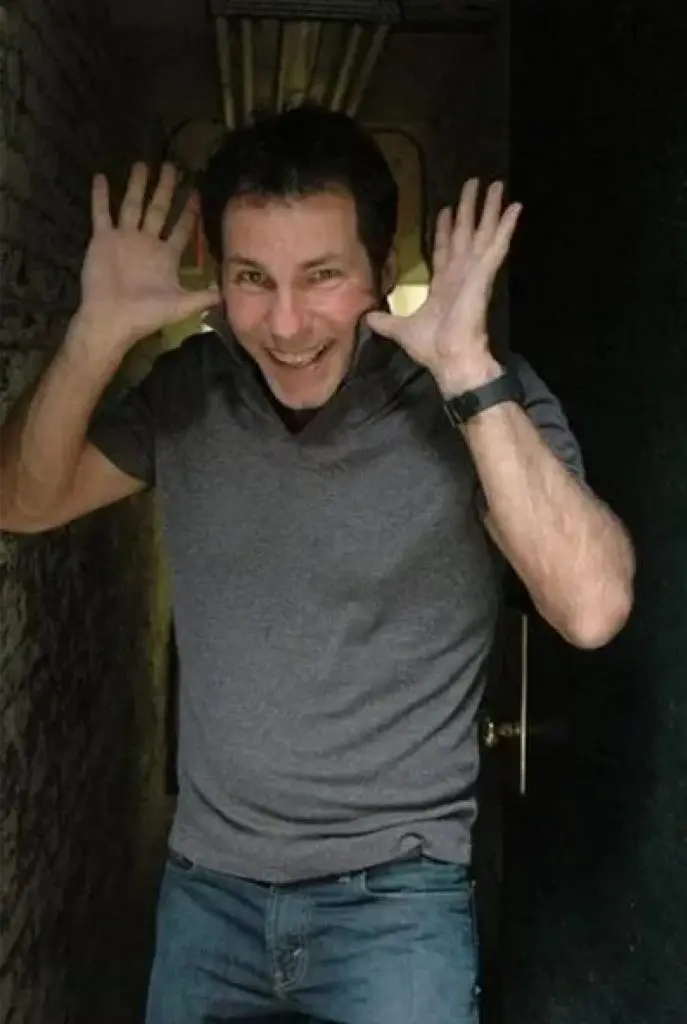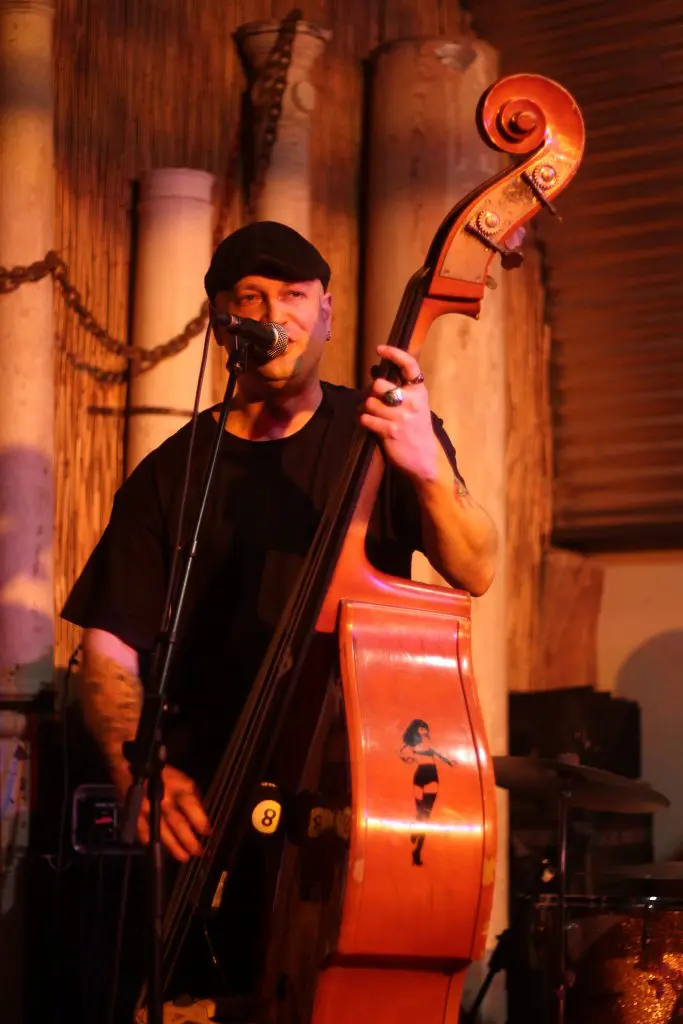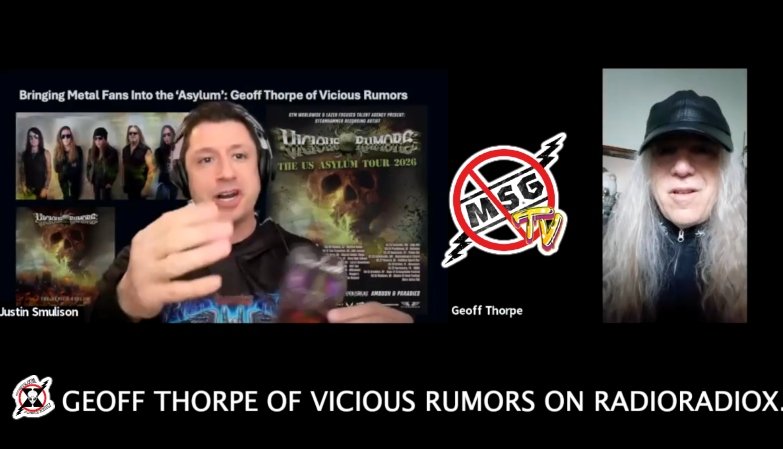Steve Marshall – A Kid from Flatbush Takes the Stage
Written by Klyde Kadiddlehumper on June 27, 2020
RRX: We’re speaking with Steve Marshall, actor, writer, director and comedian. I know you’ve got a 917 area code. I’m always interested in where you grew up, whether it was your childhood, or your schoolmates, or your first foray out after having graduated high school, what’s the thing that drove you to end up where you are? What do you remember as being really important?
SM: Well, what drove me to be a comedian was I went to public school in Brooklyn. I grew up in Flatbush. I was not a good athlete. My father never taught me to defend myself. I was made fun of because young boys, they tend to gravitate to the boys that are athletes. Some of these young boys were aggressive with me.
My mother dressed me very formally when I went –
RRX: Oh.

Steve Marshall
SM: Right, “oh.” I was going to Brooklyn public school, and I was wearing gray slacks and a 100% cotton pebble grain from Brooks Brothers button-down shirt. My mother might as well have just put a kill me sign on my back and sent me out the door.
I found my sense of humor by accident. The kids that picked on me started laughing. It was really very, very simple. My sister and I grew up in a neighborhood in Flatbush in a six-story apartment house that didn’t have, believe it or not, any other children in it. Think about it. There must have been about 50 apartments, no other children to play with.
I was raised, you have to have an education. I was raised that you don’t talk things out with your hands, with violence. You discuss things. I was raised, I was gonna get an education. I watched Green Acres and I saw Eddie Albert’s charcter, Oliver, was an attorney and they moved to the country. All of a sudden, he’s the most educated person there. The script is flipped and he’s the idiot.
I think watching TV shows like Green Acres or Beverly Hillbillies, where the world was turned upside down…Think about it. They were the hillbillies that were supposed to know nothing. Now is the reverse. They go to Beverly Hills and the Beverly Hills people are so snobby, and they turn the world upside down.
RRX: It fits. Think of The Lords of Flatbush, and Stiletto, and all that other stuff, which is its own little piece of the world.
SM: And Saturday Night Fever.
I have a degree in accounting from the State University of New York at Buffalo.
RRX: [laughing]
SM: Yes!
RRX: So, accounting? You did this, why?
SM: Well, that’s a great question. I did it because I wasn’t just having trouble matriculating with the other students in Brooklyn. I was also having trouble at home. My parents were not demonstrative with affection. My father was getting very sick since I was about 11 years old, and he was having a problem with depression. Everybody said he was manic-depressive, but I would always say I never saw him as manic. I described my father as a depressive-depressive. He went from lows to even lower lows.
Why did I become an accountant, then? Everybody said to me, when I told people I’m gonna go to school to get a degree in accounting, all of my friends – ’cause I did have friends. Please, it wasn’t like West Side Story when I left the house.
So, I started coaching comedians because I got divorced and I went broke. Somebody came up to me, Don Jamieson –
RRX: Divorce will do that to you.
SM: Divorce will do that to you. I used to say to people seriously, it was the saddest month of my life. Everybody just laughed ’cause they thought it was funny that it only lasted a month. So, I was so scared, and Don Jamieson, he’s the host on VH1 of That Metal Show, said, “Marshall, I’ll give you $400 if you promise to show up and coach me.” This is in 1994, when there weren’t really any comedy coaches. Then, after that, Lisa Lampanelli came to me, and Carmen Lynch, who’s been on the Letterman Show and others shows, came to me.
RRX: They’re such fun people.
SM: So, what I learned from Vince Lombardi is execution. It’s the Green Bay sweep. They know we’re gonna run the sweep, we know we’re gonna run the sweep, but we’re gonna execute it. Remember the documentary where Vince Lombardi is going, “We’re gonna steal here, we’re gonna steal here, we’re gonna steal here.” The same with comedy. You write your jokes or your texts, then you believe in them, then I say you assume the sale. You don’t ask, am I funny? You assume that it’s gonna work. But you have to execute. And that’s how accounting helped me be a better comedian ’cause in accounting, it’s black and white, and you have to execute. Believe it or not, I’m the Vince Lombardi of accounting.
RRX: I first came across you in a Food Network show with Bobby Flay – how did that happen.
SM: I was dating a girl, and we went to a restaurant in the East Village, and a person came up to us, chitchatting. Said he was an agent. He liked my girlfriend, and he sent my girlfriend on auditions and never even, knowing I was a comedian, tried to book me. I was like, very generous and I said all right, let her. I’m not gonna interrupt it. Two and a half years later, to get a call from him, and he says, I have something for a comedian. I was lucky I never bothered him.
I go to audition for Hot Off the Grill with Bobby Flay and I am told at the audition, “You are perfect for this. But, I just want to make sure, you’re a comedian, that you realize it’s not your show, it’s the Bobby Flay show. I don’t want your ego and Bobby Flay’s ego, you both have big personalities, to clash.” I said, “I don’t think that’s gonna happen.” I had to audition for it. So did other comedians. Todd Barry did it. Eddie Brill did it.
So, I get this show. Bobby, first of all, is fantastic. There are no cue cards. We did two or three shows a day. He cooked everything perfect the first time and then the cast and crew, we would eat the food in between setting up for the next show every day. I think I did about nine shows.
The famous thing that’s on, you can see online, is Bobby was, I believe, Irish from Manhattan, I’m Jewish from Brooklyn.
RRX: He’s Irish, all right.
SM: Yeah. We had a rapport. The initial thing was, he had me dipping chicken, raw chicken, into some sort of sauce. When I pulled my hands out, my face was looking so disgusted they yelled, “Cut! Cut! Cut! Cut!” They go, “It’s a cooking show. People are watching. You want to make cooking look good. You can’t dump the chicken in the sauce and then make faces of disgust.” That was the last time they let me cook anything.
So, I would just stand next to Bobby while he cooked. He gave me a chore one time, just move the chicken around on the barbeque grill. He gave me an idiot job. But then, Bobby was great. He turns to me once and he goes, “We use kosher salt.” I know he did this on purpose, we didn’t plan this. He goes, “Steve, do you know why we use kosher salt?” He took a pause and I ad libbed, “Because it’s cheaper?” They left it in the show! We didn’t get censored. They left it in the show.
RRX: I’m gonna cut to the writing piece of what you do. I want to go there because you have written things. You’ve written a one-man show, you’ve done all this stuff. You got movies you’ve rewritten. You have all of these things. You did a project that had some pretty amazing people in it. The rewrite, I’ve read through. How did that happen? How did you end up there? The folks in that film were just, okay, Louise Lasser, who is…
SM: Right. I’ve got stories on every one of them. How I got the film was, I wrote and directed a short film called Get the Script to Woody Allen. It won the Long Island Film Festival. Then, they set it up at some foreign film kiosk; I keep blocking out the name. We have to look it up, the name of it. Put a kiosk for it at some film festival famous for…
All right, so the producer comes back to me and says, “I wrote a feature film. Would you take a look at it? The same producer from Get the Script to Woody Allen. I said, “all right, I’ll take a look at it.” I took a look at the script and I said, “Listen, what’s your budget? You will never make this movie for that amount of money.” Because this was a movie that had so many different locations, they’re driving in a car cross country. He doesn’t listen to me, but I rewrite the script. I rewrite the script.
That’s the answer. The answer is that he produced the movie I wrote and directed called Get the Script to Woody Allen, won the Long Island Film Festival. All right. So now, he asked me to rewrite the script, which I do. Then, he says to me, “Look, I really want you to direct this movie.” I said, “Listen, I will direct this movie, but I don’t think you can make this movie based on the budget.” So, he hires the director. I think he says, “Oh, I’m gonna direct it. I’m gonna direct it.”
Then, a day before, he’s been talking to me over the phone because whatever. I’m giving him tips, not even advice. He goes, “I’m nervous. Can you direct it?” With no notice, I step into directing this feature film. I’ll tell you, he had a knack, this producer, for getting famous people.
We go to Brooklyn, New York, Bay Ridge and Mickey Rooney, a lifetime Academy Award winner for a scene at an Avenue U or King’s Highway something pharmacy, which he has purchased for the day. Mickey Rooney walked in – I had never met him – he goes, “Who’s the director?” Shouts.
They go Steve, Steve. He goes, “Steve,” and he has the script in his hand, “Do I have to say these words,” he’s practically screaming, very aggressive, but friendly, “Do I have to say this exactly the way it’s written?” Now, I’ve never met Mickey Rooney, I am an unknown director, but I’m very comfortable.
I go, “Mickey, I don’t care if you say the words exactly,” now I’ve never spoken to him before, “just as long as the meaning behind the words comes out when you speak.” He goes, “Fantastic. I like you, Steve.” He gives me a pat and he walks away. I never had another problem with Mickey Rooney.
RRX: The most recent bit that you have done, the thing that I found truly fascinating is Comedy for Peace. I read the review from Portland – let’s face it, the world got stupid. I get the concept because people are people and, let’s face it, how is it that I normally put it? I can tell a complete ass from a billion miles away, but not everybody’s a complete ass.
You’re doing this show, where I believe it is five people, yes?
SM:Yes, there were five comedians. One of them was a black Muslim, I believe. One of them was Indian. One of them was Jewish, in addition to myself being Jewish. The host and producer comedian was from Israel.
RRX: That has to be, first, from a comedic standpoint, a hard run. But secondarily, the audience you were playing to, it’s not like a comedy club.
SM: I’ll tell you what happened. This guy, Eric Angel from Israel, came into the Broadway Comedy Club one night. The last two and a half years, I do my show from the crowd. I don’t use a microphone. I want to repeat that. I don’t behave. I’m trying to deconstruct comedy and do something different because when I first started out in comedy, I would go through the audience. Many years of being afraid maybe, or not afraid, but many years of trying to become a Dangerfield, Rodney Dangerfield, part of the regulation comedians, I tried to do it their way.
This guy saw this and he said, “I’ve never seen anything like this in my life.” He was telling me this the other day. He said, “I’ve never seen anybody.” This is so different, not using a microphone, doing everything in the audience. But also, my message was, as it has been for the last ten years, love versus hate. He came up with an idea. He had me do a synagogue show, and the theme of the show was comedy for peace. We did very well. We took it to colleges and universities.
RRX: The final question. What is it that is in your head, they are words about who you are, what you want people to think, and the message that you would like to send forward? Because, you know, we’re all locked up in our own shit. But if you’ve got a minute to say here’s what I’d like you all to think about and what I’d like you to send forward, what would it be?
SM: I’d like to take a phrase from the African American people, one love. I’d like to be remembered as a comedian who dared to show love and affection because when you think of comedians, you very often don’t think of them as being people, not that they’re not nice people, but people don’t often think that love and affection can go together with comedy. I want to be remembered for putting love and affection together with comedy, and using my comedy and my life to bring love and respect to people.
I want people to remember me for don’t behave because if black people had behaved, they would still be on the back of the bus. Maybe if we had behaved, we wouldn’t have sent people into space. I think it’s such an important thing to remember, don’t behave like anyone but yourself. Don’t behave, don’t be afraid to be yourself. Don’t behave, don’t be afraid to have integrity to who you are. What that means is when you make a decision, we all have times of should I do this? Should I do this? Ask your heart is it the right thing to do?
I want to be remembered as someone who believed in love and affection. It takes me a while to get to it. Never doubt yourself.
You may also like
Continue reading




 RadioRadioX
RadioRadioX